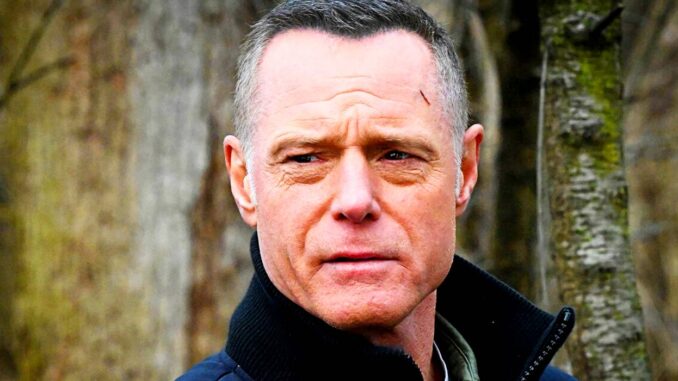
Reid Is Dead, But Chicago PD Confirms That He Still Has the Last Laugh Over Voight In Season 13
The rain hammered down on Chicago, mirroring the relentless drumming in Hank Voight's chest. Season 13 of Chicago PD had thrown him a curveball, a devastating blow that ripped at the very core of his being. Reid. Gone. Not in some blaze of glory, not fighting a monster of Voight's making, but taken by a random act of violence, a senseless tragedy that reeked of the unfairness of the streets. But the cruelest twist? Even in death, Reid managed to deliver a final, crippling blow to Voight, a victory that echoed through the Intelligence Unit, forcing Voight to confront the darkness he so often embraced.
Reid wasn't just another cop. He was the conscience, the moral compass Voight subconsciously relied on to navigate the murky waters of justice. He was the young, idealistic face that reminded Voight of a life he'd left behind, a life where the lines weren't so blurred. He was the one who dared to question Voight's methods, who refused to let him slip too far into the abyss. And now, Reid was gone, leaving a gaping hole not just in the unit, but in Voight's own sense of self.
The initial episodes after Reid's death were a whirlwind of grief, guilt, and a desperate, almost manic attempt to find his killer. Voight channeled his pain into the investigation, pushing his team to their limits, crossing lines with a reckless abandon that horrified even them. He justified it as justice for Reid, but it was clear: he was trying to drown out the silence, the deafening absence of Reid's quiet questioning, his steady gaze.
It was during this feverish hunt that the first seeds of Reid's posthumous victory began to sprout. As Voight dug deeper into the case, he uncovered a web of corruption that implicated a prominent city official. This official, a powerful man Voight had previously used and protected, had been secretly involved in the very operation that led to Reid's demise. Voight was faced with a choice: protect his own interests, maintain the status quo, or expose the truth, even if it meant bringing down a system he himself had benefited from.
This was Reid's final test for Voight, a challenge presented from beyond the grave. He had always preached about right and wrong, about holding the powerful accountable. He had consistently challenged Voight to be better, to resist the temptation to compromise his principles. And now, even in death, his influence lingered, a spectral hand guiding Voight toward a path he knew he had to take.
The ensuing investigation was brutal. Voight faced immense pressure from his superiors, from the very system he was trying to dismantle. He lost allies, gained enemies, and faced the real possibility of being thrown under the bus himself. Yet, he persevered. He followed the evidence, exposed the corruption, and brought the guilty to justice.
It was a hard-fought victory, but it was a victory nonetheless. And in the aftermath, as Voight stood overlooking the Chicago skyline, the weight of Reid's loss heavy on his shoulders, he finally understood. Reid's last laugh wasn't about revenge, it wasn't about punishing Voight. It was about reminding him of the man he could be, the man he still had the potential to be. It was about forcing him to confront his own darkness and choose a path toward the light.
Voight had won the battle, but Reid had won the war. He had challenged Voight's very soul, and in doing so, had forced him to choose a different path, a path rooted in justice, accountability, and a newfound respect for the principles that Reid had so valiantly upheld. Reid was dead, but his legacy lived on, a constant reminder to Voight that even in the darkest corners of Chicago, hope, and a commitment to doing what's right, could still prevail. And in that, Reid, even in death, had the last laugh, a quiet, powerful victory that resonated long after the rain stopped falling on the city.
